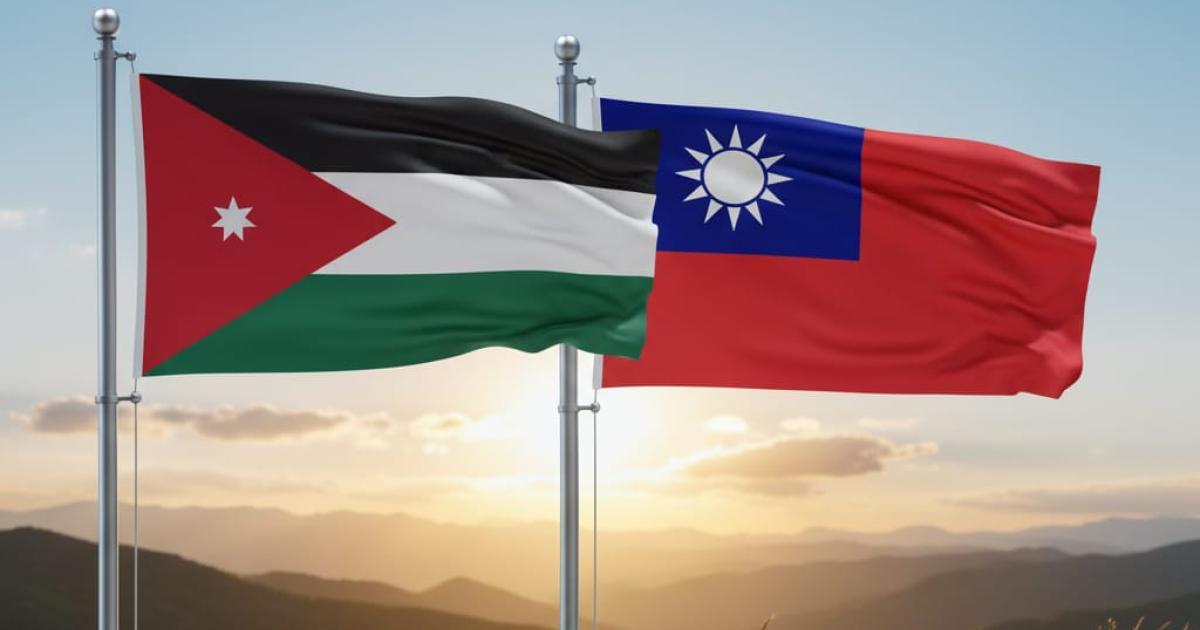Taiwan As A Model: What Is Jordan Missing To Replicate The Experience?
This fluency reflected the smoothness of Taiwan's economic transformation, raising a central question: how can Jordan, with its remarkable human and geographical stability, emulate the“Taiwanese experience”?
Jordan and Taiwan show a stark contrast in unemployment rates: in Jordan, unemployment reached around 21.3% in the first quarter of this year, with female unemployment exceeding 30%, while in Taiwan the rate remains exceptionally low, around 3.3–3.4%.
To identify areas of potential benefit, we must first look at the numbers. Taiwan, which decades ago built its industrial base, is today the global powerhouse in semiconductor (microchip) production-the backbone of AI technology and cybersecurity-explaining its very high living standards.
Yang: Jordan is a vital partner in the region, and we seek to strengthen economic and cultural ties
This gap in unemployment, especially among Jordanian youth, represents the greatest challenge. While Taiwan manages a knowledge-driven economy that generates high-value jobs, Jordan still struggles with pressure on traditional employment sectors.
Jordan can draw lessons from Taiwan along three main axes, all requiring political will comparable to that which brought Taiwanese scientists back from abroad to build Asia's“Silicon Valley” in the 1970s.
The first axis is a“brain strategy” (reverse talent migration). Yang pointed out that Taiwan attracted its expatriate experts to work in technological fields. Jordan possesses immense human capital, with engineers and IT specialists working in global companies like Google and Microsoft, as well as in major infrastructure projects.
The Jordanian government should urgently establish a national plan offering competitive incentives-financial, legislative, and logistical-to attract even just 5% of these talents to launch their startups and contribute to specialized training centers in AI and cybersecurity, in collaboration with Taiwanese exchange programs.
The second axis focuses on supporting small and medium-sized enterprises (SMEs) to combat unemployment. Yang emphasized that Taiwan relies on government funds to back youth initiatives and creative ideas, a crucial factor in keeping unemployment extremely low. Jordan's unemployment is structural and cannot be solved by government jobs alone.
Instead of exhausting the budget on limited administrative positions, funds should be redirected to support SMEs with high added value, applying Taiwanese governance and transparency models. A successful small project creating three jobs is far more valuable than a single administrative post.
The third axis is agricultural technology to address water scarcity. Jordan is one of the world's most water-poor countries, threatening its agricultural sector. While Taiwan's water challenges are different-related to management and storage-their expertise in precision agriculture, land reclamation, and green rooftop farming could offer a new lifeline.
Investing in economic relations to establish joint training and funding programs that transfer Taiwanese technology for smart drip irrigation and greywater recycling in homes and farms could strengthen a“green economy” and ensure the sustainability of Jordan's food basket.
Jordan-Taiwan relations are not new; they date back to the late King Hussein's visit to Taiwan in 1959. Successful Taiwanese investments already exist in Jordan, particularly in the textile sector, totaling about $60 million and providing 7,500 jobs. This partial success proves that Jordan is a safe and attractive environment.
Transferring the Taiwanese experience does not mean copying it-it means adopting its spirit: valuing human capital as the most precious resource, encouraging innovation through direct government support, and turning natural challenges, like water scarcity, into technological opportunities. Jordan stands at a crossroads today, and the Taiwanese model lights the path toward a knowledge-driven economy capable of employing its youth and shaping its future.

Legal Disclaimer:
MENAFN provides the
information “as is” without warranty of any kind. We do not accept
any responsibility or liability for the accuracy, content, images,
videos, licenses, completeness, legality, or reliability of the information
contained in this article. If you have any complaints or copyright
issues related to this article, kindly contact the provider above.
Most popular stories
Market Research

- 1Inch Becomes First Swap Provider Relaunched On OKX Wallet
- Betfury Is At SBC Summit Lisbon 2025: Affiliate Growth In Focus
- LYS Labs Moves Beyond Data And Aims To Become The Operating System For Automated Global Finance
- Ethereum Meme Coin Little Pepe Crosses $25M, Announces 15 ETH Giveaway
- Phase 6 Reaches 50% Mark As Mutuum Finance (MUTM) Approaches Next Price Step
- Mutuum Finance (MUTM) Raises $16 Million While Advancing Toward Platform Release






















Comments
No comment